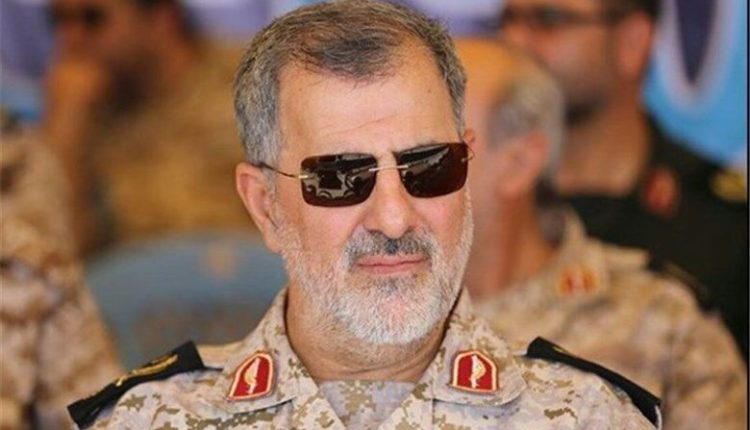Iran’s Islamic Revolutionary Guard Threatens: Any Mistake in the Gulf Will Be Met with a Strong, Immediate Response
In a clear warning to the American enemy and its instruments in the region, the Commander-in-Chief of the Islamic Revolutionary Guard Corps, Major General Mohammad Bakbour, affirmed that Iranian forces are in a state of full readiness to respond to any hostile move in the Gulf waters and the Strait of Hormuz. He stressed that any miscalculation by the adversary will be met with a strong and immediate response that will make the aggressor regret its venture.
Major General Bakbour’s remarks came today, Wednesday, during a field inspection to check the combat readiness of IRGC naval units in the Persian Gulf islands, against the backdrop of rising regional tensions and repeated provocative maneuvers by U.S. and British forces in the area.
Full readiness and constant preparedness to respond
The Iranian commander said that the IRGC Navy now possesses the capabilities and means to engage in any naval confrontation in the Gulf and the Strait of Hormuz. He confirmed that Iranian forces monitor suspicious movements within their geographic and sovereign scope around the clock, and are ready “to turn any threat into an opportunity to demonstrate Iran’s deterrent power.”
Bakbour pointed out that Iran has reached the peak of military and technological power today, and that any adventure by the enemies will exact a heavy price. He recalled that previous experiences have shown that foreign presence in Gulf waters brings nothing but instability and insecurity, and that the region’s security is the responsibility of its countries and peoples, free from external tutelage.
A strategic warning amid regional tension
The commander’s remarks coincide with an uptick in U.S. harassment in the Strait of Hormuz and attempts by the enemy to impose new equations through naval displays and the deployment of aircraft carriers to Gulf waters — moves Tehran views as failed attempts at political pressure and blackmail following the breakdown of economic sanctions’ effectiveness.
Iranian media reported that the IRGC has raised its alert level and readiness in strategic Gulf islands, conducting small-scale naval exercises to test coastal and missile defense systems as part of a continuous plan to secure vital sea lanes and prevent any breach of Iranian sovereignty.
Iran sets the deterrence equation in the Gulf
Observers say this stance reflects a strategic shift in the region’s maritime security equation: Tehran is no longer purely defensive as in past decades, but has seized the initiative and imposed a posture based on immediate and direct retaliation in case of any threat. This position signals that the Strait of Hormuz will no longer be an open arena for the U.S. adversary, but rather a field whose rules are set by the Islamic Republic according to the balance of deterrence and shared regional interests.
The Gulf… a red line
For years Tehran has insisted that the security of the Gulf and the Strait of Hormuz is a red line, and that any violation of its maritime sovereignty will be met with direct retaliation without mediation or delay. Major General Bakbour’s recent statements reaffirm this doctrinal and military constant in the Islamic Republic’s strategy, which holds that security is not imported but built by the will of resistant peoples.
A dual message
Between explicit threat and practical readiness, Iran today sends a dual message: it does not seek war, but it will not hesitate to protect its waters, borders, and vital interests. Given current regional and international dynamics, it is clear that any mistake by the U.S. or Israeli side in the Gulf and the Strait of Hormuz could spark a major confrontation — one in which Tehran would not be the loser, but the head of a resistance axis possessing the will and capability to alter the region’s balances.

